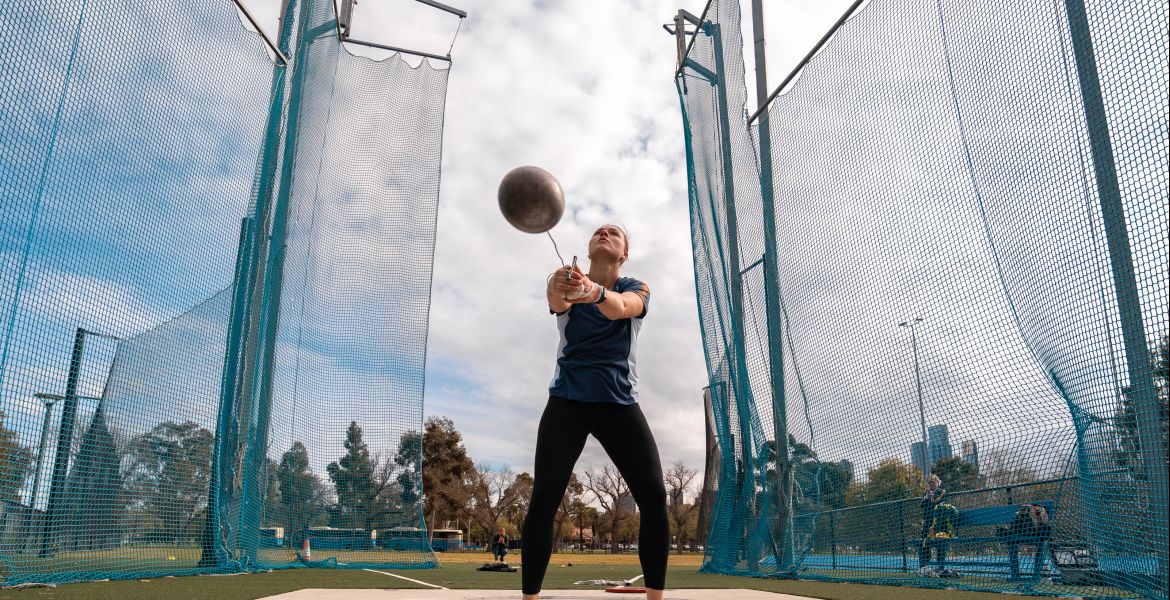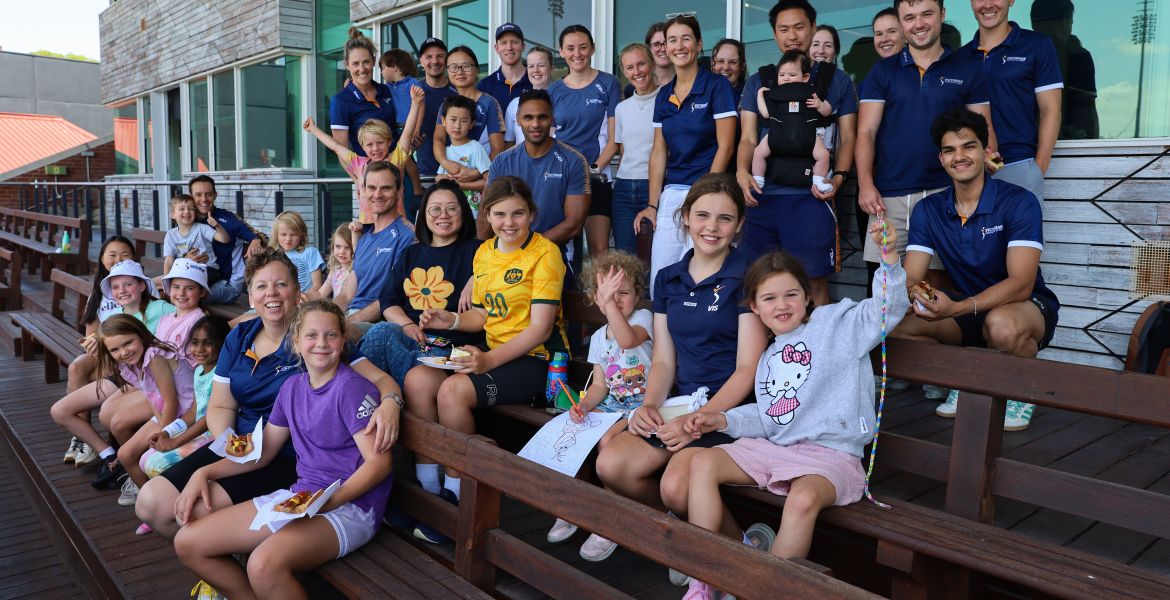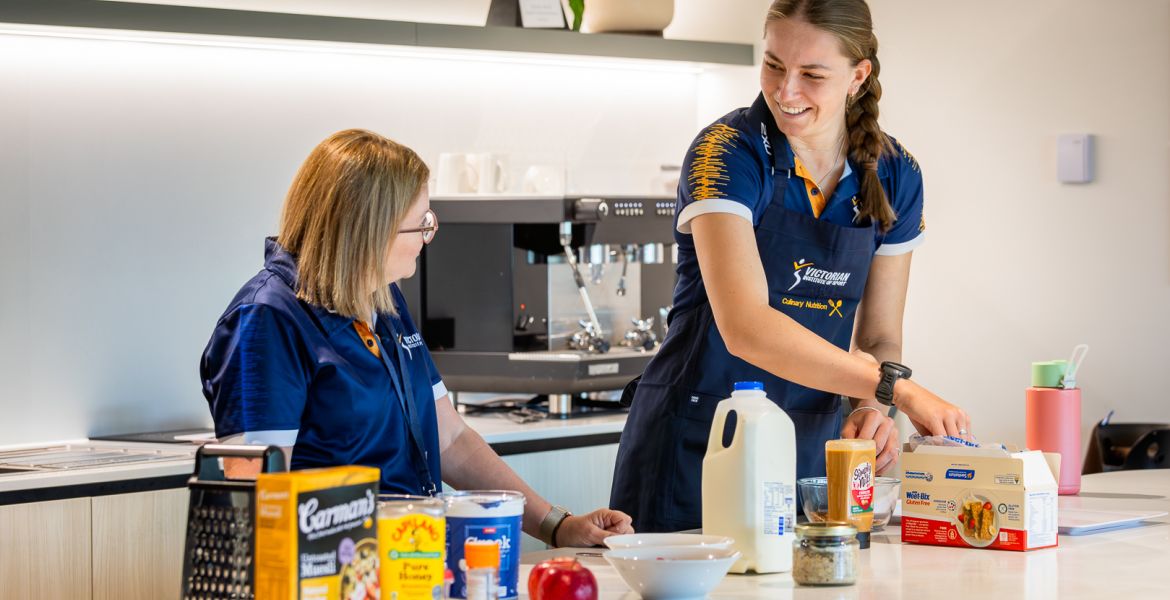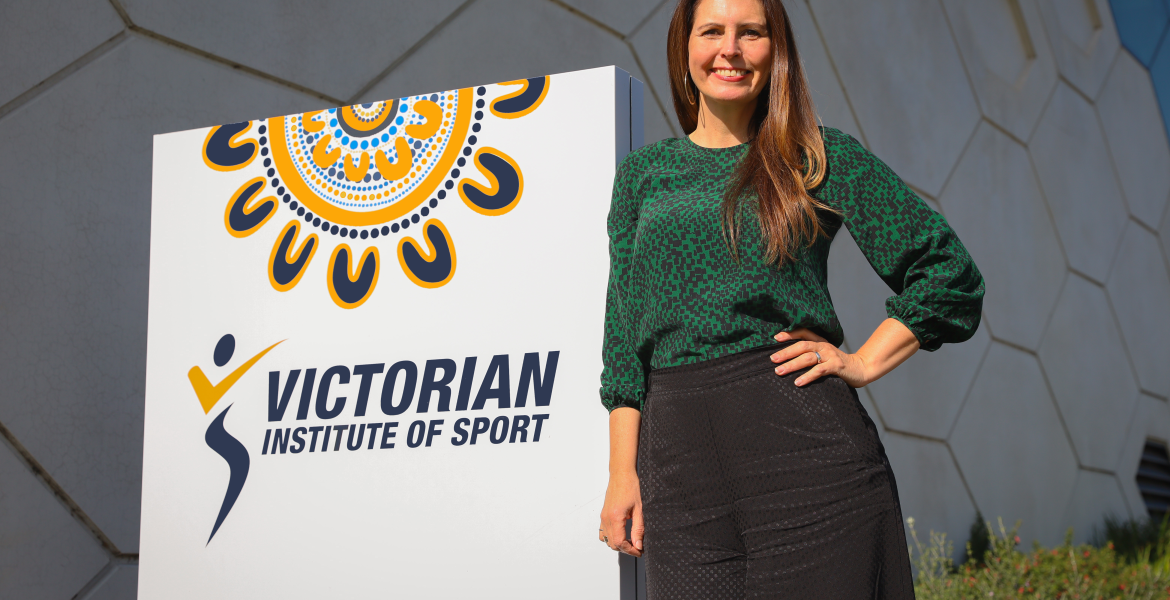We caught up with VIS Nutrition Coordinator Kylie Andrew to see how her team has adapted to these challenging times and continued to assist athletes with their nutritional needs virtually.
How are you able to still continue servicing athletes from home?
KA: The Nutrition Team have been able to continue servicing athletes from home using Telehealth. Like other services, video meetings have allowed regular follow ups and conversations to occur. In addition, the various tools used for communicating with squads has allowed us to share information, fact sheets and recipes. We’ve been able to run cooking sessions and workshops online from the comfort of our and the athletes’ own kitchen and home.
What advice have you been giving athletes during isolation?
KA: We’re always working with athletes on periodising their diet. During this time of reduced and different training, it has provided a great opportunity for us to chat more with athletes about better understanding their bodies’ energy needs and fuelling appropriately. The advice given has been individualised - some athletes adjust their intake inherently based on appetite and other factors, whereas others have to stop and reflect about it and consciously make changes. Reflecting and being more aware about internal hunger cues helps them to understand what their body needs rather than eating mindlessly.
What has been some of your biggest challenges from a Nutrition point of view?
KA: Not being in the daily training environment where we have “corridor conversations” with athletes and other support staff has been a challenge. Those moments where you see someone and it reminds you that you have a question or wanted chat to them about something. Whether it’s an athlete or other support staff member, that sees their dietitian and it provides a reminder of something they want to discuss. Being in the daily training environment is important for our work as it allows us to observe athletes as they go about training , and we may pick up on certain things that can affect their nutrition which otherwise may not get brought up in conversation.
Has there been anything that you’ve noticed isolation has helped with from a Nutrition point of view?
KA: With increased time available, athletes have had the opportunity to pause and reflect on their nutrition goals and take the time to work on areas that may have been neglected or put off before.
Like others we have certainly felt the benefits of regular team meetings within the sports and the increased effort by all staff and service providers to communicate and engage.
We’ve all had time for some extra Personal Development; enrolling in online courses, attending international conferences online, watching webinars, listening to podcasts etc.
We've also used this time to plan our nutrition program with each of the sports for the next 12 months.
Have you been able to use some of this time to try any different/new things with the athletes?
KA: In many instances it's been a case of getting back to basics, and doing those things well, rather than experimenting with new things.
Although, we have been training to use a new software program that will allow for better diet monitoring, planning and communication with athletes. We are starting to trial this with a couple of athletes.



















